![]()
Please pray for them as they prayed for you many times while I was with them.
On Sunday, February 19, I boarded a plane in Pensacola, FL, to begin the thirty-six-hour journey to Tanzania. Karen Elliott, Executive Director of the Rafiki Foundation, had invited me to experience a few of their classical Christian schools and to serve for two weeks with the administrative missionary team from the Rafiki home office.
TANZANIA
I landed near the base of Mt. Kilimanjaro, greeted by a warm and dusty midnight wind. Karen and a local driver met me there, and we traveled through the dark night for thirty minutes to the first of three “Rafiki villages” on my itinerary.
Waking up that first morning, the songs of unfamiliar birds outside my window and the mosquito net surrounding my bed reminded me that I was in central Africa. My morning coffee came with an amazing view of the mountain. My path to the school for morning assembly led me by large vegetable gardens—farmed by the students and staff for food at the school—rather than by sidewalks and parking lots.
I soon learned why each Rafiki School is called a “village.” All of them are surrounded by a fence with a guarded gate at the front, and all were started as orphanages after the AIDS and Ebola outbreaks devastated several countries throughout Africa. About 15 years ago, the Rafiki villages started classical Christian schools for the children living there, and now serve students from the surrounding community, too.
The differences between their world and mine were striking, almost as striking as how much was the same. The students stood in the typical lines by grade, looking good in their blue uniforms and black dress shoes. They sang their national anthem. Later, the second grade class shared prayer requests. At recess, I played duck-duck-goose with the third and fourth graders before moving on to soccer.
With the teachers after school, I taught a brief history of classical Christian education (CCE) from the past 2500 years and led them in a discussion of CCE in their classrooms. We also discussed the challenges posed by government testing, how to lead an upper school discussion, the goal of formational lifelong learning, and the importance of keeping Christ and the Bible at the center of all learning. I would find our classical Christian vision mirrored at each village on my visit.
MALAWI
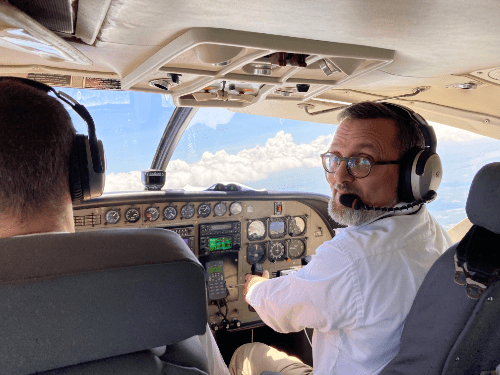 We’ve all had times when the beauty of God’s creation is particularly striking. For me, one of those times was gazing through the cockpit of the small, twelve-passenger plane an intrepid AIM missionary pilot let me “fly” over Malawi.
We’ve all had times when the beauty of God’s creation is particularly striking. For me, one of those times was gazing through the cockpit of the small, twelve-passenger plane an intrepid AIM missionary pilot let me “fly” over Malawi.
The Malawi village sits on 70 acres and is more remote than most. Despite the location, several national Christian leaders, college presidents, and pastors were planning to join us one morning for a student presentation of songs, Bible verses, science lessons, and poetry. But the highlight happened before the presentation even began, while we waited for some late guests. The upper school students began spontaneously singing from their seats in the back rows. And they continued singing a mixture of psalms and hymns, stopping only for brief discussions about what to sing next.
In the evening, we joined the older children and their house mothers for singing and Scripture reading and it was like a little glimpse of when we’ll sing with the angels in glory. They sang joyfully, loudly, and in multiple part harmony—and most of the time, every verse of a hymn from memory. After the students sang for the guests at the morning recitation, the girls ensemble was asked to sing at a university graduation the next day where the President of Malawi would be the guest speaker.
When it was time for us to leave Malawi, several upper school students came to see us off. Andrew and Shadrach, two boys in grade twelve, had talked with me late into the previous night. I asked if they had any messages to share with their brothers and sisters in American classical Christian schools. Andrew said, “I’d like to tell them to work hard, do their best in life, always love God, and do what’s right before His sight.” Shadrach said, “I want to tell them to work hard and continue to see the truth, beauty, and goodness of God and how to bring it all together. Help us to continue to spread classical Christian education throughout America and Africa and eventually to the whole world. And, keep the Christian faith!”
![]()
The upper school students began spontaneously singing from their seats in the back rows. And they continued singing a mixture of psalms and hymns, stopping only for brief discussions about what to sing next.
ZAMBIA
Flying into Zambia, I was again struck by the beautiful rolling hills, green grass and trees, and the rich farmland. Part of that beauty was because it was the rainy season, which I learned can have an impact on generators.
Rafiki’s teacher training program is called R.I.C.E. (Rafiki Institute for Classical Education). I taught a class focused on the importance of holistic formation of students in the areas of knowledge, faith, wisdom, and virtue. In the middle of the discussion, rain began to fall loudly on the tin roof, the generator went out, and the classroom went dark.
Before I could say “class dismissed,” the students simply leaned in closer, and spoke just a little louder, and continued to dive deeply into the discussion. In the darkness they had eyes to see and under the thrumming tin roof they had ears to hear, and they were not going to let anything stop them. We linked our discussion to Luke 10:25-28, 2 Peter 1:5-7, Galatians 5:22-23, and Ephesians 3:14-19, and sharpened each other to advance Christ and His kingdom for the good of the children of Zambia and the glory of God.
As if to highlight the growth of CCE in Africa, we also attended a leadership council at Justu Mwale University to discuss the strengthening partnership with Rafiki and R.I.C.E., and the need for more Christian professors who understand reformed theology and CCE. The Dean of Students from African Bible College also joined us for dinner to discuss CCE.
![]()
In Africa, it is easy to see the cultural impact of the daily studying of God’s Word and singing hymns and psalms together as a community.
LESSONS LEARNED
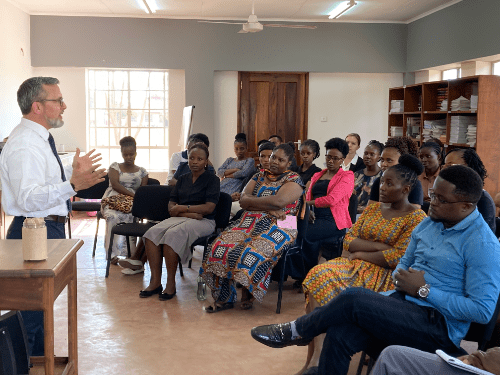 Each Rafiki village has two or three American missionaries who serve as Campus Administrator, Headmaster, or Dean of R.I.C.E. The remaining 25-40 teachers and staff members are all nationals who live off campus. The exceptions are the house mothers who live on campus to raise the orphans in their care. Two Rafiki administrators at the Zambia village have each served there for over two decades. The Rafiki schools in Africa excel in music, theology, Christian community, and other areas of academics.
Each Rafiki village has two or three American missionaries who serve as Campus Administrator, Headmaster, or Dean of R.I.C.E. The remaining 25-40 teachers and staff members are all nationals who live off campus. The exceptions are the house mothers who live on campus to raise the orphans in their care. Two Rafiki administrators at the Zambia village have each served there for over two decades. The Rafiki schools in Africa excel in music, theology, Christian community, and other areas of academics.
Rafiki is a few years into a plan to shift from orphan care toward a full-time focus on CCE. There are about 40-90 orphans in each country that remain in the care of the Rafiki Foundation and live on campus. However, most of the 250- 400 students attending these schools walk to school from the surrounding homes and communities. Similar to America, most kids attend government schools, but the success of CCE is being noticed and the Rafiki curriculum is spreading to many other schools.
Before this trip, I knew that CCE could benefit every American child and I hoped that it could translate well to other countries. Now, I have seen the blessing, benefit, and success of CCE in Africa and know it can be a blessing to Christian families in every country around the world.
Everyone should experience the joy and the love of CCE at the Rafiki schools in Africa! Unfortunately, most of you may not meet these dear brothers and sisters until we are together in eternity. Please pray for them as they prayed for you many times while I was with them. Consider serving at a Rafiki school for short or long term service.
Double down on your efforts, involvement, and commitment at your local classical Christian school here in America and keep yourself and your family grounded daily in the truth of the Bible. In Africa, it is easy to see the cultural impact of the daily studying of God’s Word and singing hymns and psalms together as a community. Start this practice in your homes, help it to advance at your schools, and pray for God to work in us and through us for Christ and His Kingdom. ✤
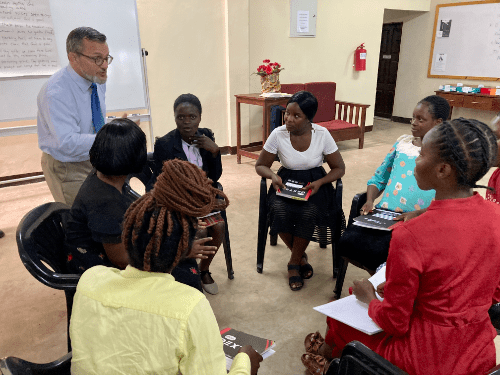

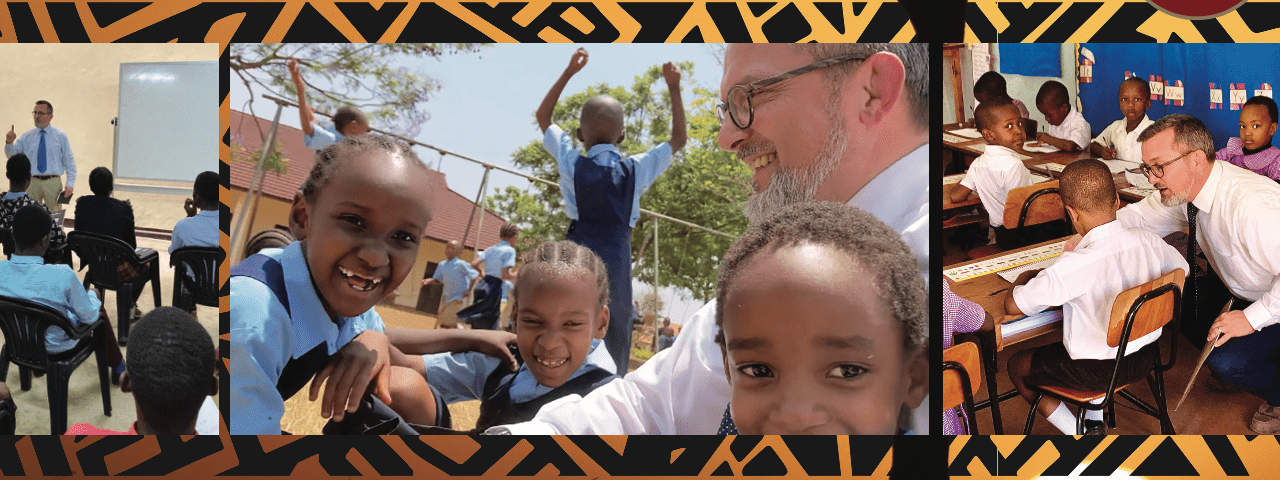

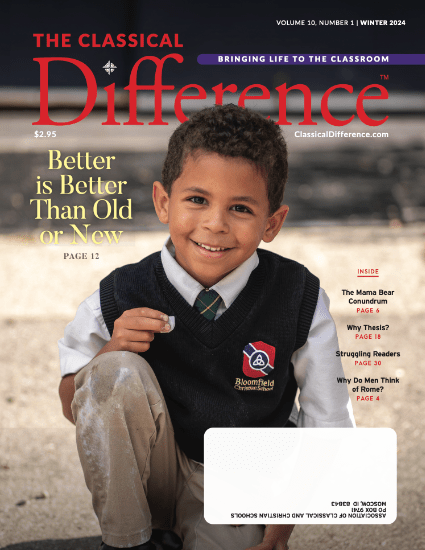









thank you for taking the time and effort to visit these 3 Rafiki schools. My wife and i were fortunate to have been deans at Zambia for 1 year and then for 3 months this past year and in Malawi for 3 months. Rice is a super program and we are delighted to see so many RICE grads now teaching in Rafiki.
Thank you Tim for such a great article. Gwen and I thoroughly enjoyed your visit to our village in Tanzania. Our staff appreciated your encouraging words and your talk on classical christian education.